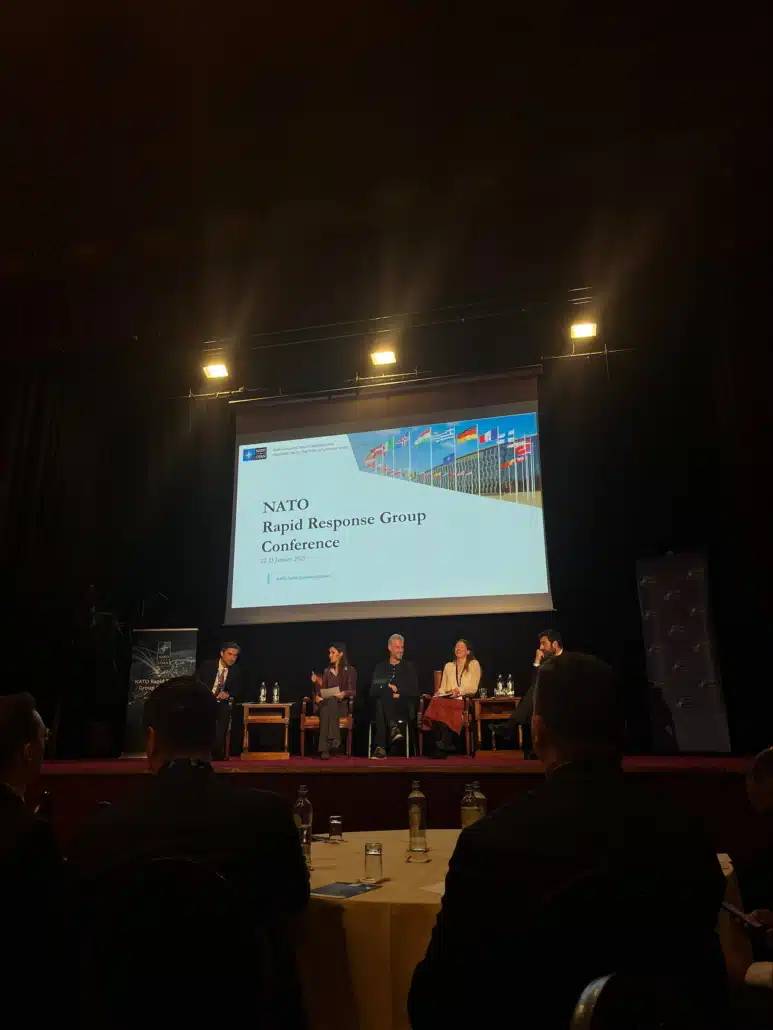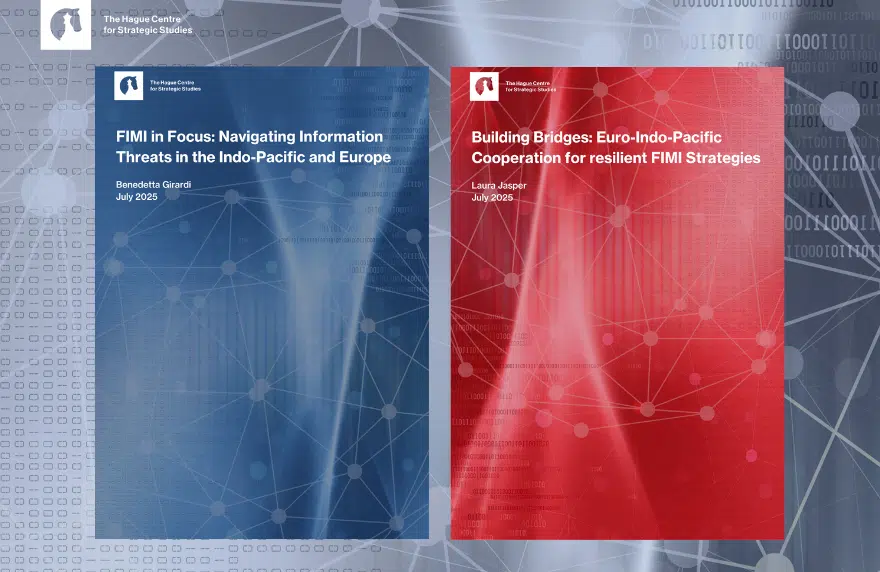Last week, HCSS strategic analyst Laura Jasper attended the first ever NATO Rapid Response Group Conference in Brussels. The conference addressed the topic of countering information threats and had participants from Allies, NATO bodies and agencies, NATO Strategic Commands, COE’s, international organizations, including the EU, and selected civil society and industry.
Looking back at the interesting debates and table top exercise, Laura noted that in a time we see growing threats below the threshold of armed conflict the role of non-state actors in foreign interference is becoming increasingly more visible:
“When addressing Foreign Information Manipulation and Interference in a time of hybrid warfare, it is imperative to not be deceived by the word ‘foreign’ as the use of non-state actors and more specifically domestic actors, proves to be a growing challenge.”
Jasper highlights that these practices do get picked up, for example in the recently published Intelligence report of the Belgian VSSE (state security) where an example is included of the recruitment of ‘freelancers’ via social media to carry out activities ranging from gathering intelligence, propaganda actions to military reconnaissance and sabotage. During the conference this was illustrated by the roles of Hollywood reputation management firms, PR agencies sourcing influencers and other ‘for hire’ actors such as transnational organized crime groups.
Apart from a table top exercise, there were panels ranging from resilience building through a whole-of-society approach, the importance of sharing the threats and attacks observed in the information space amongst the (de)fenders community but most of all, the importance of access to data. Lastly, there was much needed insights from industry with representatives from BlueSky Social and BlackBird AI.
About the NATO Rapid Response Group
The NATO RRG was created last June with the aim to bring it together with two already existing collective response mechanisms across NATO and the EU on the topic of information threats. Namely, the Rapid Response Mechanism and the EU Rapid Alert System.








